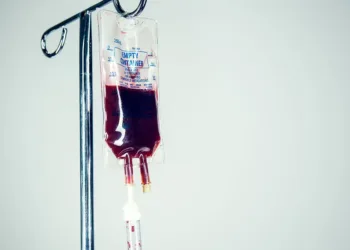Food allergies are more common than you might think, and they can range from mild to severe. Some people may not even realize they have a food allergy until they experience a reaction. Recognizing the signs of a food allergy is crucial for your health and well-being.
Living with a food allergy involves careful monitoring of your diet and food labels. It’s essential to avoid the allergenic foods and be prepared with an epinephrine auto-injector if you have a severe allergy. Educating yourself and those around you is also vital to prevent accidental exposure to allergens.
Here are five signs that indicate you might have a food allergy.
1. Skin Reactions
One of the most common signs of a food allergy is skin reactions. This can manifest as hives, itching, or eczema. These reactions can occur shortly after eating the allergenic food. Hives are raised, red, itchy welts that can appear on any part of your body. If you notice these symptoms after eating a particular food, it’s essential to consult with an allergist for proper testing.
2. Gastrointestinal Symptoms
Food allergies can also affect your digestive system. Symptoms such as nausea, vomiting, abdominal pain, and diarrhea can occur after consuming a triggering food. These symptoms can be mistaken for food poisoning or other digestive issues, but if they consistently follow the consumption of specific foods, it’s worth investigating the possibility of a food allergy.
3. Respiratory Issues
Allergic reactions to food can affect your respiratory system. If you experience symptoms like sneezing, a runny or stuffy nose, coughing, wheezing, or shortness of breath after eating certain foods, it may be a sign of a food allergy. In severe cases, food allergies can even lead to anaphylaxis, a life-threatening reaction that requires immediate medical attention.
Read Also: 5 Best Foods for Brain Health
4. Swelling of the Face or Throat
Swelling of the face, lips, tongue, or throat is a serious sign of a food allergy. This condition, known as angioedema, can make it difficult to breathe and can be life-threatening. If you experience swelling of the face or throat after eating a specific food, seek emergency medical care.
5. Cardiovascular Symptoms
In rare cases, food allergies can affect the cardiovascular system, leading to symptoms like a drop in blood pressure, a weak pulse, or dizziness. These symptoms may occur in conjunction with other allergic reactions and require immediate medical attention.
If you suspect you have a food allergy based on these signs, it’s essential to consult with a healthcare professional, ideally an allergist, for proper testing and diagnosis. Allergy tests, such as skin prick tests or blood tests, can help identify the specific food triggers. Once you know your allergens, you can take steps to manage your condition.










